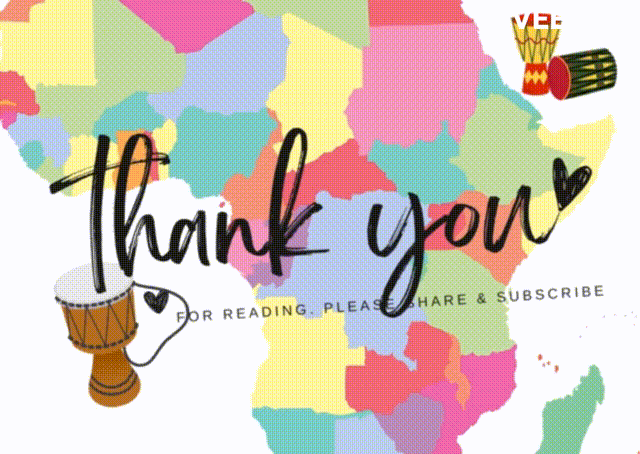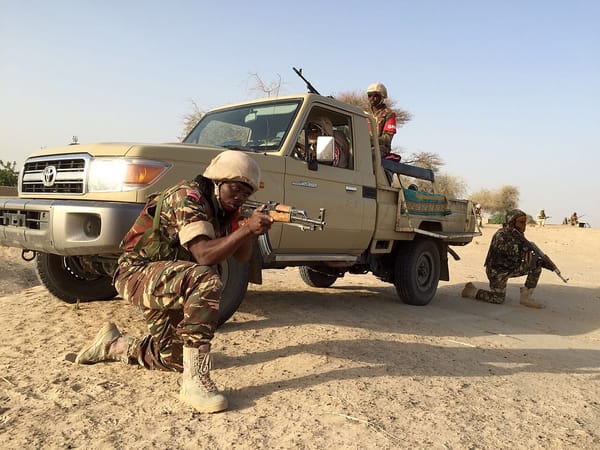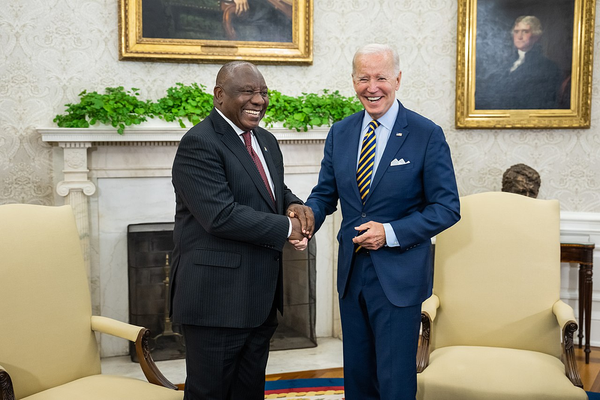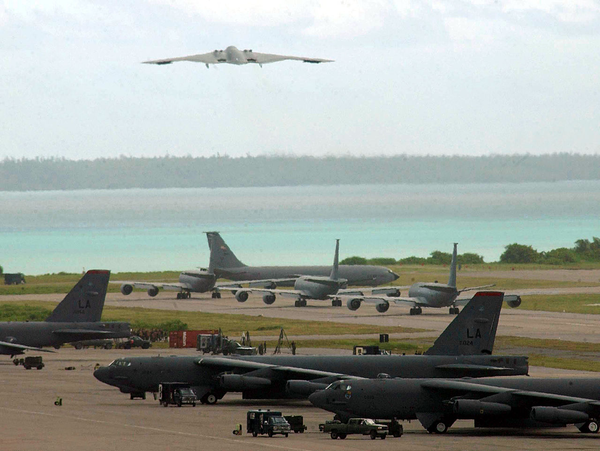News From Around The Motherland.
In this week's post ● Equatorial Guinea's president has reportedly received Russian troops for protection, sparking human rights concerns. ● Mauritius has a new prime minister after the opposition party won a landslide victory. ● Protests in Mozambique over a disputed election.

D. R. Congo

Mpox Cases May Be Stabilising in Congo But More Vaccines Are Needed
Mpox Cases Plateauing in South Kivu
Cases of Mpox in South Kivu, Congo, appear to be levelling off after a surge fueled by a more infectious variant first detected in the region. While the symptoms of this strain are less severe, making it harder to detect and contain, other parts of Congo and neighbouring countries like Burundi and Uganda are seeing rising infections.
Health experts see this plateau as a potential turning point to curb the outbreak, but the situation remains precarious. Congo reported fewer than 100 laboratory-confirmed cases last week, down from nearly 400 in July. However, the Africa CDC estimates that 3 million vaccines are needed to end the outbreak, exceeding the 50,000 people vaccinated thus far.
DR Congo Faces Renewed Rebel Violence
Violence Surges in Eastern DR Congo
Eastern DR Congo has seen a resurgence of rebel activity, displacing thousands and exacerbating humanitarian challenges. Armed groups, including the M23, continue to clash with government forces in resource-rich areas.
The violence undermines peace efforts and raises concerns about the region’s security. International actors are urging renewed diplomatic engagement to address the root causes of the conflict.
Nigeria.

New Insurgent Group Threatens Northwest Nigeria
Emergence of Lakurawas in Northwest Nigeria
A new insurgent group, Lakurawas, is infiltrating northwest Nigeria, with suspected ties to militias in Niger and Mali. This escalation is believed to be linked to the July 2023 coup in Niger, which disrupted joint border patrols.
Already plagued by violence from armed gangs and kidnappings, the region faces growing insecurity. Nigerian military officials reported killing 163 insurgents and rescuing 80 kidnapped individuals last month, but the emergence of Lakurawas underscores the challenges in maintaining stability.
Nigeria Signs Gas Deal with China to Boost Aluminium Production
$1.2 Billion Gas Facility Deal
Nigeria has inked a $1.2 billion agreement with China's CNCEC to revive a gas processing plant critical to the Aluminum Smelter Company of Nigeria. The plant, capable of processing 135 million standard cubic feet of gas, is a key part of efforts to reinvigorate the country's industrial base.
The deal, part of Nigeria's deepening economic ties with China, could position the smelter as a leader in Africa's aluminium market. Despite being an oil giant, Nigeria faces severe economic challenges, making such investments crucial for diversification.
Nigeria’s Oil Theft Crisis Worsens
Oil Theft Threatens Nigeria’s Economy
Nigeria is grappling with an escalating oil theft crisis, costing the country billions in lost revenue annually. Criminal networks siphon crude oil from pipelines, exacerbating fiscal pressures in Africa's largest economy.
Efforts to combat theft, including military patrols and surveillance technologies, have yielded limited success. Experts warn that unless systemic corruption and security gaps are addressed, the crisis will continue to undermine Nigeria’s economic stability.
Sudan.
Sudan’s Conflict Escalates with Regional Implications
Sudan’s Civil War Fuels Regional Instability
The ongoing conflict between Sudan's military and paramilitary Rapid Support Forces continues to devastate the country, displacing millions and triggering a humanitarian crisis. Neighbouring nations are grappling with an influx of refugees.
Efforts to mediate the conflict have faltered, as both sides reject compromise. Analysts fear that the protracted violence could destabilize the Horn of Africa, further complicating regional security dynamics.
Mali.

Mali’s Military Government Expels UN Peacekeepers
Mali Ends UN Peacekeeping Mission
Mali’s military junta has expelled UN peacekeepers, accusing the mission of failing to curb jihadist insurgencies. The decision marks a significant shift in Mali’s foreign relations, as the country increasingly turns to Russia’s Wagner Group for support.
Critics argue that the move leaves vulnerable populations exposed to rising violence. The expulsion underscores Mali’s complex security landscape and its pivot away from Western partnerships.
Resolute Mining Executives Arrested in Mali
Arrest of Resolute Mining Executives
Malian authorities detained the CEO and two other executives of Australia's Resolute Mining during a visit to Bamako, citing an unspecified dispute. The arrests mark a troubling development for the company, which has denied wrongdoing and insists it has adhered to local laws in its gold-mining operations.
The detentions follow a pattern of escalating tensions between Mali's military government and foreign mining firms. In September, Canadian company Barrick Gold faced a similar situation, raising concerns over the government’s growing scrutiny of the industry as it seeks to increase revenues.
Ghana.

Ghana Fights Illegal Mining Amid Environmental Crisis
Crackdown on Illegal Mining in Ghana
Ghana is intensifying its fight against illegal gold mining, locally known as “galamsey,” which has caused widespread environmental damage. Rivers and farmland have been polluted, threatening livelihoods and public health.
The government has deployed task forces and introduced stricter regulations, but enforcement remains a challenge. Activists call for community-led initiatives to curb the practice and promote sustainable mining practices.
Ghana’s Crude Oil Production Rebounds After Five-Year Decline
Oil Output Rises Amid Economic Strains
Ghana’s crude oil production increased by 10.7% in the first half of 2024, marking the first uptick after five years of decline. The rebound is largely credited to the Jubilee South East project, which began production in late 2023.
The output boost translated into a 56% rise in petroleum revenue, critical for Ghana’s economy. However, the sector continues to face challenges, including regulatory hurdles and operational inefficiencies.
Algeria.
Algeria Mediates Talks in Sahel Crisis
Algeria Steps Up as Sahel Mediator
Amid escalating tensions in the Sahel, Algeria is positioning itself as a key mediator. The country has hosted talks aimed at resolving disputes between regional governments and insurgent groups.
Algeria’s efforts highlight its strategic role in stabilizing North Africa and the Sahel. However, analysts caution that deep-seated grievances and rivalries could limit the impact of diplomatic initiatives.
Angola.

Angola Invests in Renewable Energy
Angola Pursues Green Energy Goals
Angola is ramping up investments in renewable energy, aiming to diversify its oil-dependent economy. Projects include solar farms and wind turbines designed to increase energy access in rural areas.
The government’s green push aligns with global trends toward sustainability. Experts view Angola’s efforts as a positive step, though challenges in financing and infrastructure remain.
Somalia.
Somalia Plans for Direct Elections
Somalia Eyes Historic Elections
Somalia is preparing for its first direct elections in decades, a move seen as a milestone in its democratic journey. The government aims to transition from a clan-based electoral system to a one-person, one-vote model.
While the plan signals progress, concerns over security and logistical challenges persist. International partners are providing support, emphasizing the elections’ importance for Somalia’s stability and development.
Niger.

Nigeriens Rally in Support of Junta, Denounce Foreign Interference
Thousands March in Support of Junta
In a striking show of support, thousands of Nigeriens marched in Niamey to back the junta and denounce foreign interference, particularly by France. Protesters accused France of attempting to destabilize the regime and hailed alliances with Burkina Faso and Mali.
The demonstration reflects growing calls for sovereignty in the Sahel, with protesters urging the junta to focus on national development and military self-sufficiency. The rally underscores the region’s broader push for independence from foreign influence.
South Africa.
South Africa Closes Border with Mozambique Amid Election Protests
Border Closure Amid Election Turmoil
South Africa temporarily closed its main border with Mozambique following escalating violence over disputed election results. Protests have turned deadly, with at least 18 killed and vehicles torched near the Lebombo port of entry.
The unrest follows accusations of fraud in Mozambique’s election, which the ruling Frelimo party denies. Human rights groups have condemned the government's heavy-handed response, including internet blackouts and live ammunition against protesters.

South Africa Faces Mounting Energy Challenges
Power Crisis Deepens in South Africa
South Africa’s energy woes persist as rolling blackouts, or “load shedding,” disrupt daily life and economic activities. The country’s ageing power grid and reliance on coal-fired plants have left state utility Eskom struggling to meet demand.
President Cyril Ramaphosa has pledged reforms, including investments in renewable energy, but progress remains slow. Businesses and households are increasingly turning to private solutions, highlighting the urgent need for a systemic overhaul.
Chad.
Boko Haram Kills 17 Chadian Soldiers in Lake Chad Attack
Renewed Violence in Lake Chad
Boko Haram insurgents attacked a military post in Chad’s Lake Chad region, killing 17 soldiers and losing 96 of their fighters in the ensuing clash. The attack disrupts a period of relative calm in an area long besieged by insurgency.
This latest incident highlights the enduring threat Boko Haram poses across the region. Despite past military gains, the group’s activities continue to destabilize Chad and its neighbours.
Cameroon.

Cameroon Seeks to Strengthen Russian Military Ties
Cameroon Deepens Military Cooperation with Russia
Cameroon is exploring closer military cooperation with Russia, particularly in counterterrorism and combating piracy in the Gulf of Guinea. The talks are part of a broader effort to diversify security partnerships beyond traditional allies like France.
Officials see Russia as a valuable partner in enhancing military capabilities, though concerns linger over Moscow's geopolitical ambitions in Africa. The discussions signal a shift in Cameroon’s defence strategy amid growing regional instability.
Gabon.
Gabon Reopens International Borders After Coup
Borders Reopen After Gabonese Coup
Gabon has reopened its international borders, months after a military coup ousted President Ali Bongo. The transition government, led by General Brice Oligui Nguema, seeks to reassure investors and rebuild confidence in the economy.
The reopening comes as the country charts a path toward stability, but questions remain over the junta's commitment to restoring civilian rule. The coup reflects broader trends of military takeovers across Africa.
Uganda.
Ugandan Soldiers Accused of Abuse in Somalia
Ugandan Troops Under Scrutiny in Somalia
Ugandan soldiers serving under the African Union Transition Mission in Somalia face allegations of human rights abuses, including unlawful killings and extortion. The claims have raised questions about accountability in peacekeeping operations.
Uganda’s government pledged to investigate the accusations, but human rights advocates remain sceptical. The allegations risk tarnishing the mission’s credibility as Somalia works toward long-term stability.
Uganda Prioritizes Oil Development Amid Criticism
Uganda Balances Oil Ambitions and Environmental Concerns
Uganda is pushing forward with its oil development projects, including the East African Crude Oil Pipeline, expected to generate significant revenue. However, activists warn of environmental and social costs tied to the initiative.
The government defends its plans, emphasizing the potential for economic growth and job creation. Yet, balancing oil exploitation with sustainability remains a pressing challenge as Uganda navigates global energy and environmental pressures.
Rwanda.
Rwanda Prepares for 30th Genocide Anniversary
Rwanda Marks 30 Years Since Genocide
Rwanda is preparing to commemorate 30 years since the 1994 genocide, which claimed an estimated 800,000 lives. The government plans nationwide events to honour victims and highlight reconciliation and economic development progress.
Despite strides in unity, lingering tensions and restrictions on political freedoms continue to raise concerns. The anniversary serves as a reminder of the enduring impact of one of history’s darkest chapters.
Tanzania.
Tanzanian President Addresses Climate Challenges
Samia Suluhu Hassan on Climate Action
Tanzania's President Samia Suluhu Hassan has urged African nations to prioritize climate adaptation, emphasizing the continent's vulnerability to extreme weather. She called for greater access to international funding to combat the effects of climate change.
Tanzania is grappling with prolonged droughts and rising sea levels, impacting agriculture and coastal communities. The president’s remarks highlight the urgency of global cooperation to address Africa’s disproportionate burden.
Ethiopia.
Ethiopia Tackles Post-War Challenges

Ethiopia Grapples with Peace and Recovery
Ethiopia is navigating the aftermath of its devastating conflict in the Tigray region, focusing on rebuilding infrastructure and fostering reconciliation. The federal government has signed peace agreements with Tigray leaders, but mistrust remains high.
International donors have pledged support for reconstruction, yet experts caution that sustainable peace requires addressing underlying ethnic and political tensions. As the country rebuilds, the spotlight remains on inclusive governance to prevent a relapse into violence.
Ethiopia Declares State of Emergency in Amhara Region
Crisis Deepens in Ethiopia’s Amhara Region
Ethiopia has declared a state of emergency in the Amhara region following escalating clashes between federal forces and local militias. The unrest, fueled by opposition to Prime Minister Abiy Ahmed’s policies, threatens to unravel fragile peace efforts.
The declaration underscores the challenges of governing Ethiopia’s ethnically diverse federation. Analysts warn that prolonged instability could undermine the country’s economic recovery and democratic aspirations.
Kenya.
Kenya’s Tech Boom Sparks Global Interest
Kenya Rises as Africa’s Tech Hub
Kenya’s burgeoning tech sector, led by Nairobi’s “Silicon Savannah,” is attracting significant global investment. Startups in fintech, agritech, and e-commerce are driving innovation, making Kenya a leader in digital transformation across Africa.
Despite this growth, challenges like limited internet access in rural areas and regulatory hurdles persist. Experts emphasize that strategic policies are crucial for maintaining Kenya’s competitive edge and ensuring the tech boom benefits all segments of society.
Kenyan Court Upholds Law Criminalizing LGBTQ Rights
LGBTQ Criminalization Law Stands in Kenya
Kenya’s Supreme Court upheld laws criminalizing homosexuality, reinforcing legal and societal discrimination against LGBTQ individuals. The ruling dashes hopes for reform despite growing calls for decriminalization in Africa.
Critics argue the laws violate human rights and encourage violence against marginalized groups. LGBTQ activists vowed to continue their fight for equality, emphasizing the ruling’s chilling effect on free expression and inclusion.
Zimbabwe.

Zimbabwe’s Struggle with Currency Instability
Zimbabwe Battles Inflation and Currency Woes
Zimbabwe’s economy is once again under pressure, with inflation and currency instability eroding public confidence. The government has introduced gold-backed digital tokens as a stabilization measure, but scepticism remains.
Economic analysts argue that structural reforms are essential to addressing the root causes of the crisis. Meanwhile, ordinary citizens face rising costs of living, amplifying calls for urgent economic interventions.
Zimbabwe Opposition Challenges Election Results
Opposition Disputes Zimbabwe’s Election Outcome
Zimbabwe’s main opposition party has rejected the outcome of recent elections, alleging widespread voter intimidation and irregularities. The ruling ZANU-PF party won, extending its decades-long grip on power.
Observers, including the African Union, raised concerns about transparency, further undermining confidence in Zimbabwe’s democratic process. The political impasse deepens uncertainty in a nation struggling with economic and social crises.
Tunisia.
Tunisia Faces Growing Protests

Political tensions rise in Tunisia
Tunisia is witnessing widespread protests against President Kais Saied’s government, with critics accusing him of authoritarianism and failing to address economic challenges. Public frustration is mounting over high unemployment and inflation.
Observers warn that Tunisia’s democratic gains are at risk as political polarization deepens. Calls for international mediation are growing, underscoring concerns over the country’s stability amid worsening social unrest.
Libya.
Libya’s Reconstruction Efforts Stall
Libya’s Path to Recovery Remains Uncertain
Libya’s reconstruction is hampered by political divisions and ongoing security challenges. The absence of a unified government complicates efforts to rebuild critical infrastructure damaged during years of conflict.
Foreign powers have pledged support for Libya’s recovery, but competing interests often derail progress. Analysts argue that a cohesive national strategy is essential to unlocking the country’s economic potential and achieving lasting peace.
Morocco.
Morocco Advances Solar Power Projects
Morocco’s Solar Energy Revolution
Morocco is expanding its solar energy projects, solidifying its position as a leader in renewable energy in Africa. The Noor Ouarzazate complex, one of the world’s largest solar farms, exemplifies the country’s ambitious climate goals.
While Morocco’s investments in green energy are commendable, critics highlight the need for inclusive policies that ensure local communities benefit. As global demand for renewable solutions grows, Morocco’s role in the energy transition is increasingly significant.
INTERNATIONAL NEWS.
ICC Issues Arrest Warrant for Anti-Balaka Militia Leader

Arrest Warrant for Edmond Beina
The ICC has issued an arrest warrant for Edmond Beina, a suspected anti-Balaka militia leader in the Central African Republic. Beina faces charges of war crimes, including mass killings, rape, and persecution, stemming from a 2014 attack that killed 22 civilians.
The warrant highlights the ICC's ongoing efforts to address violence in the CAR, where religious and ethnic divisions have fueled conflict. The case underscores the continued challenges of achieving justice and reconciliation in the region.
France Sends Troops to Benin to Counter Jihadi Threats
French Troops Deployed to Benin
France has dispatched troops to Benin, marking a shift in its counterterrorism operations from Mali to West Africa’s Gulf of Guinea. The deployment aims to prevent jihadist groups from expanding southward into the coastal nation.
This move reflects France's evolving strategy in the Sahel, prioritizing partnerships with countries more receptive to foreign military support. However, critics warn that such interventions risk stoking anti-French sentiment in the region.
EU Ends Fishing Deal with Senegal
EU Terminates Fishing Agreement
The European Union has opted not to renew its fishing agreement with Senegal, citing failures in the country’s monitoring and enforcement systems. This move will force European vessels to leave Senegalese waters once the deal expires and halts financial contributions to Senegal under the agreement.
The decision comes amid criticism that such arrangements have contributed to overfishing and diminished local catches. Senegalese fishermen, struggling to compete with industrial trawlers, have welcomed the development, though the EU insists its impact on fish stocks has been minimal.
We invite you to explore sponsorship opportunities or get in touch with us. Reach out to admin@prominentgreen.com.
Your engagement is highly valued, and we look forward to hearing from you with enthusiasm!

Thank you for reading.
Unlock a world of knowledge and stay ahead of the curve by subscribing to our engaging weekly newsletter.
If this was forwarded to you, don't miss out on the latest and most important headlines in Africa. Subscribe now, share your thoughts in the comments, and spread the knowledge




